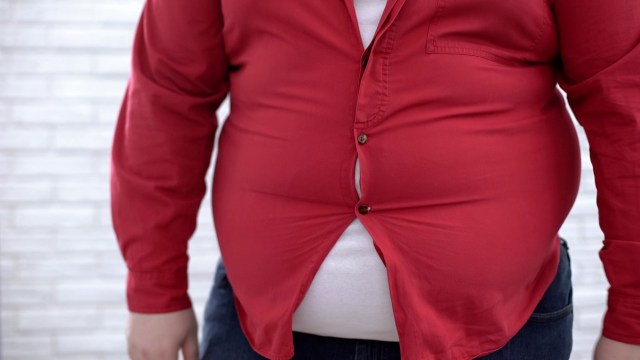Sure Signs You’re Becoming Obese
Obesity is an American epidemic. Last September, the number of Americans with obesity—defined as a body mass index over 30—was 42%, the highest ever. That’s a problem because gaining weight isn’t just about pounds. Obesity comes with the risk of serious diseases like cardiovascular disease, stroke, and type 2 diabetes, and you might be far down that track before symptoms surface.
“Most of the diseases that come with obesity are insidious and silent,” says Kuldeep Singh, MD, director of the Maryland Bariatric Center at Mercy Hospital Baltimore. These are some of the signs you’re becoming obese or even have one of the health conditions caused by obesity.
- Your Clothes Are Getting Tight
You might find that your waistbands are tight, your pants won’t button, or your wristwatch is snugger than it used to be. “It’s not OK to ignore if clothes are getting tight or not fitting right,” says Singh. “Instead of buying extra clothes, go get a checkup.” Why? To avoid several serious conditions—read on.
- Swelling of the Feet and Legs

Increased body weight can put pressure on the venous system, which carries blood throughout the body—for example, from the feet and legs back to the heart. Excess weight can cause those veins to stop working properly, leading to swelling and other problems in these extremities. “People with obesity tend to have varicose veins or clots,” says Singh. “They may retain fluid because of high blood pressure. It could even be an early sign of heart failure.”
- Shortness of Breath

People with obesity may develop large deposits of fat in and around the chest, which can impede breathing. “When they lie down, they just can’t breathe properly,” says Singh. “In some people have very large amounts of chest or abdominal fat, their diaphragm cannot move freely, and breathing, which was effortless, becomes an exercise in and of itself.”Â
- Fatigue

People with obesity may develop sleep apnea, in which excess fat obstructs their breathing during sleep. “They tend to snore, and they wake up because blood oxygen goes dangerously low,” says Singh. “And this cycle repeats every few minutes throughout the night. So you don’t actually get a restful night.” This can lead to daytime fatigue.
- Headaches

“Headaches can be seriously affected by body weight,” says Singh. One condition is called benign intracranial hypertension, in which pressure increases on the brain, mimicking the pain of a brain tumor.
- Depression

Several studies have found that obesity brings an increased risk of depression, and depression comes with a higher risk of obesity. Singh sees depression in his obese patients “almost universally,” he says. “Obesity is a built-in depression model.”Â
What that means:
Repeated unsuccessful attempts to lose weight can lead to giving up, which can result in further weight gain and worse depression. Someone with obesity might have difficulty with relationships or feel unable to participate in social activities, which can erode their self-esteem.Â
Conversely, someone with depression may resort to unhealthy coping habits like binge eating or drinking, which can cause the pounds to pile on, which can worsen the initial depression.
- What To Do

If you’ve put on weight and are experiencing any obesity-related symptoms, see your healthcare provider for advice. Don’t be embarrassed or fearful of getting a lecture. “The most important thing is admitting that obesity is a problem, and it’s a health condition that needs to be treated,” says Singh. “As we understand and realize it is a health condition that needs to be treated medically, there is less barrier of a person reaching out to a doctor” So discuss your situation with a medical professional.
The post Sure Signs You’re Becoming Obese, According to Science appeared first on Eat This Not That.
Eat This Not ThatRead More
